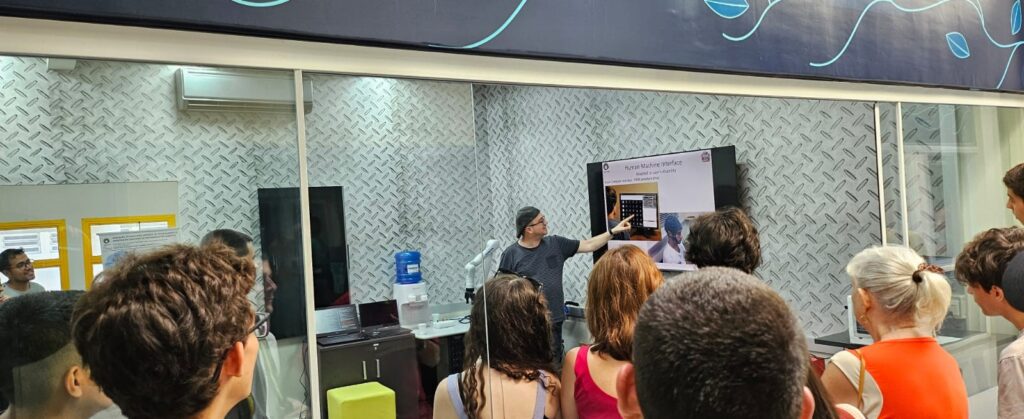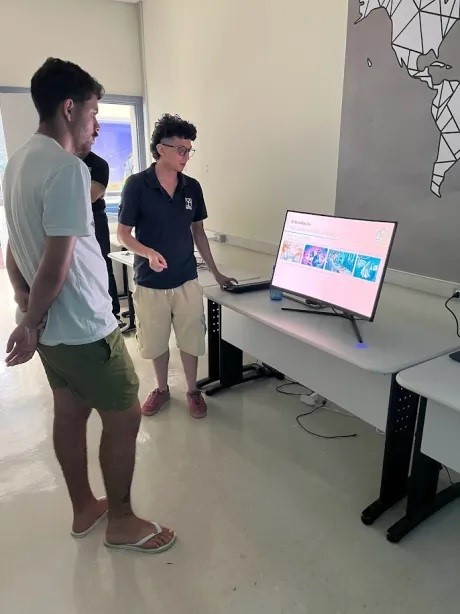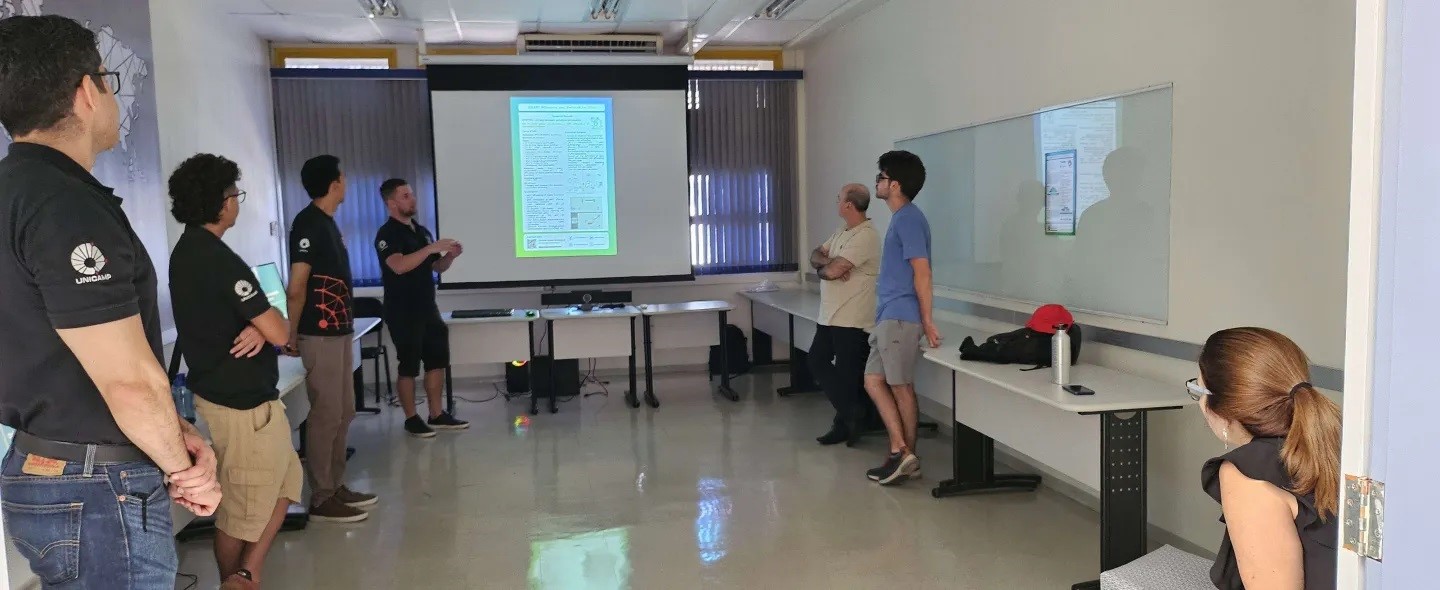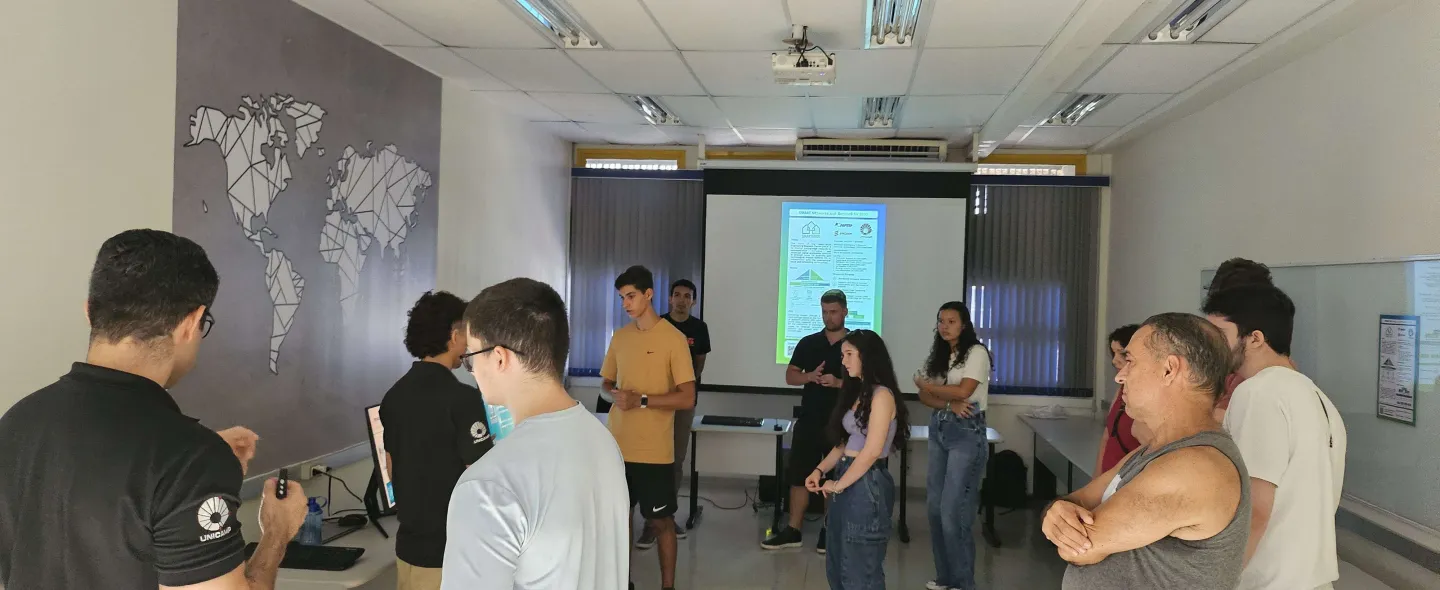On March 2nd, the School of Electrical and Computer Engineering (FEEC) hosted its annual traditional welcome event, extending a warm invitation to new students, alumni, and the wider public. This event aims to show the community the current research topics on which professors, researchers, and postgraduate students are working.
During the visit to the Computer and Automation Laboratory (LCA), attendees had the opportunity to delve into the projects developed by master’s and doctoral students from the Advanced Robotics Laboratory (AdRoLab), led by Professor Eric Rohmer. In this talk, there was a presentation of the group’s ongoing research on assistive robotics to help people with motor difficulties regain mobility and autonomy. Likewise, students from the Information & Networking Technologies Research & Innovation Group (INTRIG), led by Professor Christian Rothenberg, presented research topics related to network studies and telecommunications services for 5G networks and evolution towards 6G, along with the use of machine learning and artificial intelligence tools.
Finally, there was a presentation of the SMART NEtworks and ServiceS for 2030 (SMARTNESS) FAPESP Engineering Research Center (ERC). The center’s mission is to drive scientific and technological advancements in the 2030 horizon toward 6G networks in collaboration with the research communities involved in cloud computing and communications networks.
Follow our video about this event from our YouTube channel, and look at some images about this event:
Professor Eric Homer gives some insights for attendees.
Ph.D. student Alan Teixeira giving insight about Holographic Type Communications.
MSc. student Sergio Rossi giving insight about Integrating 5G with time-sensitive applications.
Ph.D. student Francisco Vogt giving insight about the SMARTNESS FAPESP ERC.
Attendees exploring LCA laboratory dependencies.
Ph.D. students Alan Teixeira, Mauricio Rodriguez, and Francisco Vogt and MSc. student Sergio Rossi present their line of investigation to attendees.













